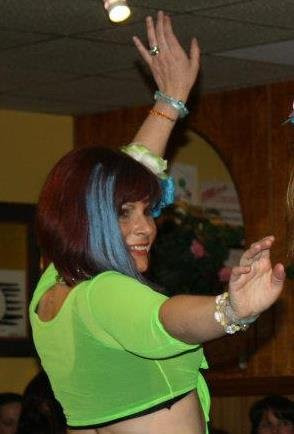I had been asked by several people in a Facebook group and also someone had asked me twice on my Blog Talk Radio Show, I Already Gave My Right Arm To Be Ambidextrous!
if I would post information on the biologics for inflammatory arthritis/psoriasis. I did some research, had my radio show for part 1 about the biologics, and now am compiling everything so my followers can read the information that I gathered.
I found my information online from Web MD, the National Psoriasis Foundation, Wikipedia, From Your Doctor.Com, MedImmune, the FDA, SkinCarePhysicians.Com, Surgical Biologics, Rheumatology, the Psoriasis Association.
Biologics are among the newer treatments for psoriasis that have revolutionized treatment of moderate to severe psoriasis and psoriatic arthritis and have become an important treatment option for these people that have not responded to other therapies. Unlike other therapies for these conditions, these biologics are considered to be a potentially safer option for long-term therapy. Some of these biologics have been shown to slow or stop the joint damage of psoriatic arthritis. In the last decade, the Food and Drug Administration (FDA) has approved several biologics for the treatment of plaque psoriasis and psoriatic arthritis. These are a few of the biologics approved for psoriasis: Amevive (alefacept), Enbrel (etanercept), Humira (adalimumab), Remicade (infliximab), and Stelara (ustekinumab). Before the biologics, people with psoriatic arthritis could take medication to alleviate the symptoms, but treatment could not prevent joint damage, which can cause lifelong disability. The biologics also have proven effective for some people when other therapies have not worked. Biologic drugs, or "biologics," are a relatively new class of treatment for psoriasis and psoriatic arthritis treatments. They are given by injection or intravenous (IV) infusion. A biologic is a protein-based drug derived from living cells cultured in a laboratory. Biologics are not new medications. While biologics have been used to treat disease for more than 100 years, the changing of modern day molecular biologic techniques has accelerated their use in modern day medicine tremendously in the last decade. Vaccines and insulin are considered biologics because they are derived from living sources. It is only recently however that biologics that are specifically targeted toward psoriasis and arthritis have begun to emerge as potentially promising new treatment options. Different from the traditional systemic drugs that impact the entire immune system, biologics target specific parts of the immune system. The biologics used to treat psoriatic diseases act by blocking the action of a specific type of immune cell called a T cell, or by blocking proteins in the immune system, such as tumor necrosis factor-alpha (TNF-alpha) or interleukins 12 and 23. These cells and proteins all play a major role in developing psoriasis and psoriatic arthritis. The biologics are taken by injection or by IV infusion. Amevive is administered by intramuscular injection in a medical office. Enbrel, Humira and Simponi are injected in the legs, abdomen or arms, typically by the individual with psoriasis or a family member. Stelara is administered as a subcutaneous injection by a health care provider. Remicade is given through IV infusion in a doctor’s office or infusion center. Biologics are prescribed for individuals with moderate to severe cases of plaque psoriasis and psoriatic arthritis. They are a viable option for those who have not responded to or have experienced harmful side effects from other treatments. The TNF blockers have been shown to reduce the progression of joint damage in psoriatic arthritis.
Immune system cells, T cells and B cells, monitor the body for bacteria, viruses and other infections. When these immune cells come in contact with a foreign substance, they release chemical signals, such as tumor necrosis factor (TNF) and interleukins, that trigger inflammation. In people with psoriasis, the immune system mistakenly activates T cells that travel to the skin and produce excessive amounts of inflammation, resulting in rapid skin cell growth and psoriatic lesions. Biologics inhibit the immune system, reducing inflammation and inhibiting the excessive skin cell growth. Different biologic medications target different portions of the immune system. Some biologics reduce T cell activity, while others reduce the production of tumor necrosis factor (TNF) or interleukins. A doctor may recommend the use of a biologic for people whose psoriasis is moderate to severe, cannot be controlled effectively with other psoriasis treatments, or cannot tolerate other psoriasis medications because of side effects. Talking with a dermatologist who has experience with the biologics is the best way to decide if a biologic is an appropriate treatment option. Before speaking with a dermatologist, it helps to know a bit about the biologics. Biologic agents may be used alone, but are often given with other DMARDs, disease-modifying antirheumatic drugs, (e.g., methotrexate, leflunomide, hydroxychloroquine, sulfasalazine), to increase the benefit and decrease side effects. When patients start biologic agents, they usually also stay on their current dose of nonsteroidal anti-inflammatory (NSAID) and/or corticosteroid (i.e., prednisone) medicines. Some of the TNF inhibitors have been approved for use in juvenile arthritis, Crohn’s colitis, psoriatic arthritis, ankylosing spondylitis and psoriasis.
Biologics are different from other medications for psoriasis and psoriatic arthritis because they are designed to block both diseases early in their development - in the immune system.
Psoriasis and psoriatic arthritis begin in the immune system when certain immune system cells are triggered and become overactive. These overactive cells set off a series of events in the body, eventually causing psoriasis to develop on the skin and arthritis symptoms to develop in the joints. Biologics work for psoriasis and psoriatic arthritis by blocking the action of certain immune cells that play a role in the diseases. In some cases biologics reduce the number of these cells in the skin and blood . In other cases they block the activation of the immune cells or block the psoriasis causing chemicals released by them.
Almost all treatments that work for psoriasis and psoriatic arthritis impact or target the immune system in some way. This is true for Ultra Violet treatment and systemic medications such as methotrexate and cyclosporin. The difference is that their impact on the immune system and body is broad, including the risk of potentially serious side effects on other organs. Biologics are more targeted and should spare the body these broad side effects and they have the potential to be a safer option. Because of the effect these treatments have on the immune system, patients on systemic and biologic treatments may require an annual flu shot.
Biologics are a class of drugs that have been used since 1998 and have been studied for almost 10 years. Overall, they have been given to more than 600,000 people worldwide. A “biologic” drug copies the effects of substances naturally made by your body's immune system. Biologic agents are genetically engineered drugs – meaning that human genes that normally help with the production of these natural human immune proteins (i.e., an antibody to TNF) are used in non-human cell cultures to make large amounts of a biologic drug. These drugs are given to decrease inflammation by interfering with biologic substances that cause or worsen inflammation. These new biologic agents can specifically affect some of the abnormalities of the immune system that lead to the joint inflammation and other abnormalities seen in rheumatoid arthritis and so help treat its symptoms. In the last decade, there have been great advances in treating rheumatoid arthritis, especially for patients whose arthritis does not respond to traditional DMARDs, with the most important advance being the development of the biologics. There are a number of biologics approved to treat rheumatoid arthritis. Biologics are genetically engineered proteins derived from human genes so they are designed to inhibit specific components of the immune system that play leading roles in fueling inflammation, which is a key feature of rheumatoid arthritis. Biologics are used to treat moderate to severe rheumatoid arthritis that has not responded adequately to other treatments. They differ significantly from traditional drugs used to treat rheumatoid arthritis in that they target specific components of the immune system instead of broadly affecting many areas of the immune system. Other biologics are being studied to treat rheumatoid arthritis as well as other conditions. Biologics may be used alone but are commonly given along with other rheumatoid arthritis medications. Biologics have been shown to help slow progression of rheumatoid arthritis when all other treatments have failed to do so. Aggressive rheumatoid arthritis treatment is known to help prevent long-term disability from RA. Biologic agents have been approved by the FDA to treat moderate to severe rheumatoid arthritis that has not responded to an adequate trial of one or more of the traditional DMARDs. Because of their expense and side effects, most people with mild to moderate rheumatoid arthritis are treated with methotrexate before a biologic agent is used unless they are unable to take methotrexate because of side effects or other conditions. Currently available biologic agents act as inhibitors of the cytokines IL-1 or TNF. Cytokines are messenger molecules that the body's cells make to act to excite other immune system cells. Interleukin-1 (IL-1) and tumor necrosis factor (TNF) are made in large amounts in rheumatoid arthritis and other forms of inflammation. In these diseases, TNF or IL-1 act to increase inflammation, like gasoline on a fire. However, in rheumatoid arthritis TNF or IL-1 (the gasoline) acts by exciting the inflamed joint (the fire). Hence, these cytokines actually worsen inflammation and joint damage. Biologic agents were made to specifically attach to TNF or IL-1 and inhibit or inactivate them.
For rheumatoid arthritis, the starting doses have been decided due to large clinical trials. Biologic agents must be given by an injection under the skin--etanercept (brand name Enbrel), adalimumab (brand name Humira) and anakinra (brand name Kineret)--or by intravenous (IV) infusion--infliximab (Remicade). These medications must be stored in a refrigerator and warmed to room temperature before use. Patient education information and videos are available for the self injectable medicines. A nurse or doctor can teach you about the medicine and how to give the injections. It is helpful to bring a spouse or friend with you to learn how to do the injections. You can inject the medicine in the front of your thighs or abdomen. Injection sites should be rotated so that the same site is not used repeatedly. Most patients who are afraid to inject themselves are usually able to give these injections repeatedly with little or no discomfort. Remicade infusions are either done through an IV line in the doctor’s office or in specialized infusion centers. These treatments usually take 2-3 hours, during which time the patient can rest, read, watch TV or do office work without discomfort.
Biologic agents usually work quickly to relieve the symptoms and swelling associated with rheumatoid arthritis. Studies show that most patients will improve within 4-6 weeks of treatment, but most patients receiving Enbrel, Humira, or Remicade will notice marked improvement after the first or second injection/infusion.
Key features of the biologic drugs: taken by injection ot infusion ( either in an infusion center or at home depending on the specific medication); treatment schedule and frequency vary; will improve psoriasis and psoriatic arthritis for some people but not all; short term side effects are generally minor although an allergic reaction to the injection can occur; long term safety is still being evaluated; they are expensive; they must be taken continuously to maintain improvement.
The most common side effect seen with biologics is pain and rash at the injection site in less than 30% of patients. As with any drugs that suppress the immune system, biologic therapy poses an increased risk of infections and other diseases. Patients taking biologics should tell their doctor immediately if they develop a persistent fever or unexplained symptoms. Vaccinations that prevent infections should be considered prior to administration of biologics. Patients should not receive live vaccines while taking biologic medications. Biologics may also cause some chronic diseases that are dormant (such as tuberculosis) to flare, and they are not recommended for people with conditions such as multiple sclerosis and congestive heart failure. All patients should be skin tested for tuberculosis before even starting biologics. Since biologic therapy is in its early stages of use, some of the long-term effects of using these medications aren't known, and your doctor should regularly monitor your health while using them. Biologics are also more expensive than traditional treatments. However, the evidence suggests that they work well and pose fewer risks than other systemic therapies. One disadvantage to current biologic medications is that they must be given either by injection or by intravenous infusion. However, researchers are currently working on developing a biologic that can be taken orally.
Although animal studies of biologics have shown no effect on fertility or effects on the fetus, these studies cannot always predict the effects in humans. Pregnant women should receive these drugs only if they are clearly needed because the effects on the developing child are still unknown. Biologics are commonly discontinued before surgery until wounds have healed and the risk of infection has passed. As a general rule, different biologic therapies should not be taken at the same time. With any treatment, it is important to meet with your doctor regularly to monitor your progress and to evaluate side effects. Your doctor may periodically order blood tests or other tests to determine the effectiveness of your treatment and detect side effects that cannot necessarily be seen on the outside. Biologic drugs have affected the treatment of rheumatoid arthritis tremendously. As mentioned above, newer biologics are being developed that either provide alternative methods or frequency of administration or different targets of action. The most common side effects seen with the injectable medicines include skin reactions, which are called “injection site reactions.” Skin reactions to injection occur in less than 30% of patients, and these patients usually complain of localized rash, burning, or itching at the site of injection. With Enbrel and Humira these skin reactions may last up to a week. Kineret injection skin reactions may last for 10-14 days before fading away without scar. The most significant side effect of these medications is an increase the risk of all types of infections, including tuberculosis (TB). Before starting an anti-TNF medication a TB skin test is usually done. Treatment with these agents should be stopped while you have an active infection and are taking an antibiotic or if you have a high fever. Remicade can cause allergic reactions. There are also rare neurologic complications from the anti-TNF medications, and people with multiple sclerosis should not use them. People with significant congestive heart failure should not take the anti-TNF agents.
Do not take biologics if: your immune system is significantly compromised; you have an active infection. Screening for tuberculosis (TB) or other infectious diseases is required before starting treatment with Enbrel, Humira, Remicade, Simponi and Stelara.
People considering taking a biologic drug should talk with their doctor about the short- and long-term side effects and risks. It is important to weigh the risks verses the benefits of using the drugs. Biologics can increase the risk of infection. Individuals who develop any sign of an infection such as a fever, cough or flu-like symptoms or have any cuts or open sores should contact their doctor right away. The impact of biologics on a developing fetuses or nursing infants is not known. Biologics should only be prescribed to pregnant or nursing women if there is a clear medical need.
Common side effects for biologics include: respiratory infections; flu-like symptoms; injection site reactions. These side effects are generally mild and in most cases do not cause individuals to stop taking the medication.
Rare side effects for biologics include: serious nervous system disorders, such as multiple sclerosis, seizures, or inflammation of the nerves of the eyes have: blood disorders; certain types of cancer. Call your doctor if you are experiencing any side effects with biologic drugs.
All of the biologics currently on the market can be used with other treatments such as phototherapy or topicals. Data suggests that phototherapy in combination with Amevive may improve the outcome. Using phototherapy along with Remicade may increase your risk of skin cancer. Enbrel, Humira, and Remicade are safe and effective when taken with methotrexate. Talk to your doctor about whether using any other treatments with a biologic is right for you.
Most medications are created by combining chemicals. In contrast biologics are made from living human or animal proteins. The medications made from these proteins are specifically designed to act in certain ways in the body to correct something going wrong that leads to disease. Currently, all biologics used for the treatment of psoriasis must be injected or given by IV. They currently cannot be taken by mouth because the protein molecules are too large to be absorbed by the intestine and are too fragile for the stomach acid.
Biologics work by targeting the underlying cause of psoriasis — excessive skin cell growth because of an overactive immune system. Although they can often provide long periods of clear skin, they are not a cure for psoriasis and ongoing treatment is necessary.
Biologic agents represent a new kind of treatment for patients with inflammatory arthritis, like rheumatoid arthritis. They are expensive, generally effective, well tolerated and quite safe in most patients, but do increase the risk of infections. Their safety can be enhanced by proper screening procedures (TB skin test) and periodic monitoring of blood tests by your doctor. Patients should request and read educational materials from the doctor who prescribes these medicines. Watching instructional videos and having another person give you these injections can minimize the fear of injection yourself.
|
|
|
|
|
Amevive (alefacept) works by blocking the activation of a type of white blood cell called a T cell, which results in a reduction in skin inflammation. T cells normally help the body rid itself of foreign invaders such as viruses, fungi and bacteria. However, in psoriasis the T cell mistakenly attacks the skin; this sets off a chain or "cascade" of events that causes psoriasis lesions to form and become inflamed. Amevive blocks the action of T cells to reduce inflammation and inhibit skin cell overgrowth. This leads to a clearing of lesions and other psoriasis symptoms. The medication is given by intramuscular (IM) injection, usually in the doctor's office. A typical course with Amevive is one intramuscular injection per week for twelve weeks, followed by additional 12-week treatment cycles if necessary. Treatment cycles must be separated by 12 week periods off treatment. Blood tests are performed regularly to monitor T-cell counts. Each doctor may tailor the use of Amevive according to how well someone responds to treatment and tolerates the medication. |
|
|
|
|
|
|
|
|
|
Stelara (ustekinumab) works by selectively targeting the cytokines interleukin-12 (IL12) and interleukin 23 (IL23). Interleukins-12/23 are also cytokines which are thought to promote the inflammation associated with psoriasis. Stelara was FDA approved for the treatment of psoriasis in 2009. It works by blocking interleukin-12 and interleukin-23, immune-system proteins linked to inflammation and the rapid skin cell growth underlying psoriasis. Stelara is usually given by injection twice in the first month, and then every 12 weeks. This results in approximately 5 treatments per year. The relatively low number of injections and long duration between treatments are considered to be some of the benefits of Stelara. Although other biologic medications may be self-injected at home, Stelara should be administered by a medical professional. Patients should be screened for latent tuberculosis (TB) before taking Stelara and blood tests may be performed to monitor the immune system. Each doctor may tailor the use of Stelara according to how well someone responds to treatment and tolerates the medication. |
|
|
|
|
|
|
|
|
|
|
|
|
|
|
|
|
|
|
|
|
|
|
|
|
Actemra, given by monthly hour-long infusions, is the first IL-6 inhibitor for rheumatoid arthritis. It can be used alone or in combination with disease-modifying drugs such as methotrexate. IL-6, or interleukin-6, is a chemical messenger of the immune system. The FDA has approved Actemra for moderate to severe rheumatoid arthritis in patients who have not responded to one or more TNF inhibitors. TNF inhibitors include Cimzia, Enbrel, Humira, Remicade, and Simponi.The most common adverse effects include upper respiratory tract infection, inflammation of the nose or throat, headache, high blood pressure, and elevated liver enzyme level.
Cimzia works by blocking the action of a substance in your body called tumor necrosis factor (TNF). This reduces inflammation and the pain and stiffness from rheumatoid arthritis and can improve fatigue within a couple of weeks. Cimzia is an injection. Through the use of prefilled syringes, you can give it to yourself once you are taught to do so by a doctor or nurse. After the initial doses, Cimzia can be taken every 2 to 4 weeks, depending on the dose your doctor feels is right for you. In addition to pain at the injection site, the most common side effects seen with Cimzia are upper respiratory infections, such as a cold, rash, and urinary tract infections.
Enbrel reduces joint inflammation and damage from rheumatoid arthritis by blocking a chemical activator of inflammation called tumor necrosis factor (TNF). Enbrel is also an injection. Enbrel is given by self-injection under the skin once or twice a week. Patients can learn to give their own injections or receive them from a family member or caregiver who has had proper instruction. Preloaded syringes are available as self-injectable “click-pens.”
In addition to pain at the injection site, Enbrel's most common side effects are infection, including upper respiratory infections like a cold, headache, and runny nose. Enbrel is FDA approved for the treatment of psorias, psoriatic arthritis and rheumatoid arthritis. It works by inhibiting the activity of TNF (tumor necrosis factor), the chemical “messenger” that triggers inflammation. Enbrel is given as a subcutaneous injection (under the skin) similar to the insulin used by people with diabetes. People can learn to administer subcutaneous injections themselves at home. A typical treatment course with Enbrel is two subcutaneous injections per week for three months. A weekly maintenance dose may be recommended. Symptoms often return within a month or longer after stopping the medication.
Enbrel may be used alone or in combination with other psoriasis medications, including methothrexate. Blood tests may be performed to monitor the immune system during therapy with Enbrel. Each doctor may tailor the use of Enbrel according to how well someone responds to treatment and tolerates the medication.
Humira reduces joint inflammation and damage from rheumatoid arthritis by blocking a chemical activator of inflammation called tumor necrosis factor (TNF). Humira is an injection. It is given by self-injection under the skin once every two weeks. Patients can learn to give their own injections or receive them from a family member or caregiver who has had proper instruction. Preloaded syringes are available as self-injectable “click-pens.” In addition to pain at the injection site, the most common side effects with Humira are upper respiratory infection, headache, and rash. Humira has been prescribed for rheumatoid and psoriatic arthritis and was FDA-approved for the treatment of psoriasis in 2008. Like Enbrel, Humira helps clear psoriasis by interrupting the activity of TNF (tumor necrosis factor). Humira is given as a subcutaneous injection (under the skin) similar to the insulin used by people with diabetes. A typical treatment course with Humira is one subcutaneous injection every two weeks. These injections are given on an ongoing basis to relieve symptoms and stave off future outbreaks. Humira may be used alone or in combination with methotrexate or phototherapy. Patients should be screened for latent tuberculosis (TB) before taking Humira. Blood tests may be performed to monitor the immune system. Each doctor may tailor the use of Humira according to how well someone responds to treatment and tolerates the medication.
Kineret is a protein that reduces joint inflammation by blocking the action of the chemical messenger interleukin-1. The drug is administered as one injection daily (can be self-injected or given by another individual). In addition to pain at the injection site, the most common effects with Kineret are upper respiratory infection, headache, and nausea.
Orencia is used to treat moderate to severe rheumatoid arthritis. Orencia is a protein that blocks signals that are needed to activate T-cells of the immune system. Activated T-cells play an important role in the development of rheumatoid arthritis. Orencia is approved to reduce the symptoms and stop the progression of RA in patients not helped by methotrexate or other biologics. It can be taken alone or with other medications except biologics. Orencia is given by intravenous infusion monthly. Side effects include serious allergic infusion reactions. Symptoms of infusion reactions include flu-like illness, fever, chills, nausea, and headache. Caution should be used in prescribing Orencia for patients with chronic obstructive pulmonary disease (COPD). Orencia's most common side effects are headache, runny nose, and dizziness.
Like Enbrel and Humira, Remicade reduces inflammation and damage from rheumatoid arthritis by blocking a chemical activator of inflammation, tumor necrosis factor (TNF).
Remicade is given by intravenous infusion in the doctor's office, an infusion center, or hospital. Each infusion takes about two hours. The intravenous treatments are given three times during the first six weeks of therapy, then every eight weeks thereafter. Remicade is often given with methotrexate for treating rheumatoid arthritis.
Because it is administered intravenously, Remicade has the potential to cause an allergic infusion reaction, and patients are therefore monitored during infusions.
The most common side effects of Remicade are upper respiratory infection, headache, and nausea. First used as a treatment for psoriatic and rheumatoid arthritis, Remicade is also FDA-approved for the treatment of moderate to severe psoriasis. Like other biologics used for the treatment of psoriasis, Remicade works by blocking the action of TNF. Remicade is administered via IV (intravenous) infusion in a doctor's office or infusion center. It is commonly administered three times in six weeks, and then once every eight weeks. Remicade may be used alone or in combination with methotrexate. Patients should be screened for latent tuberculosis (TB) before taking Remicade and regular blood tests may be performed. Each doctor may tailor the use of Remicade according to how well someone responds to treatment and tolerates the medication.
Rituxan is approved for patients with moderate-to-severe rheumatoid arthritis who have not improved with TNF-blockers, such as Enbrel, Humira, or Remicade. Rituxan is an antibody protein that works by targeting and reducing the number of specialized white blood cells, called B cells, in the blood. Rituxan is given as two intravenous infusions -- separated two weeks apart -- in combination with methotrexate. Repeat courses of Rituxan are considered after four to eight months. Because it is administered intravenously, Rituxan has the potential to cause an allergic infusion reaction, and patients are therefore monitored during infusions. Symptoms of infusion reactions include flu-like illness, fever, chills, nausea, and headache. Rituxan's most common side effects are high blood pressure, nausea, and upper respiratory infection.
Like Remicade, Enbrel, and Humira, Simponi blocks the effects of TNF. It blocks the effects of a chemical that triggers inflammation. Simponi should be used in combination with oral methotrexate, and it’s intended for adults with moderate to severe symptoms. Simponi is taken once a month by injection. After a health care professional shows you how to do it, you can give yourself the injection at home with either a prefilled syringe or an autoinjector.
The most common side effects include upper respiratory infections, runny nose, and abnormal liver tests.
Raptiva (efalizumab), a biologic that blocks the activation of T-cells, was approved in 2003 by the FDA. It was voluntarily taken off the market in 2009 due to safety concerns. For more information about this matter, visit the Food and Drug Administration's website.
Enbrel (etanercept), Humira (adalimumab), Remicade (infliximab) and Simponi (golimumab) are drugs that block TNF-alpha. TNF-alpha is an immune system mediator called a cytokine that is a key mediator of inflammation. In psoriasis and psoriatic arthritis, there is excess production of TNF-alpha in the skin or joints that leads to the rapid growth of skin cells and/or damage to joint tissue. Blocking the TNF-alpha helps to stop the inflammatory cycle of psoriatic diseases.
Biologics prescribed for the treatment are not always covered by health insurance. It is important to check with your health insurance carrier to see if and how biologics are covered. Some insurance companies offer partial coverage, require prior authorization, or work only with certain pharmacies through mail-order programs. Also, some biologics manufacturers provide information on how to work with insurance companies and offer reduced-cost medication for qualifying patients.
The biologic medications have been investigated by the National Institute for Health and Clinical Evidence (NICE) who have issued guidelines on when they can be prescribed. NICE have issued guidelines for five of the biologics used to treat psoriasis, Etanercept (Enbrel), Efalizumab (Raptiva), Infliximab (Remicade) and Adalimumab (Humira) and Ustekinumab (Stelara). However, since issuing the guidance, Raptiva has had its marketing authorisation suspended and so will not be prescribed.
NICE recommends that Enbrel, Humira and Stelara be prescribed for people with severe psoriasis who have not responded to other systemic treatments such as phototherapy, Methotrexate, Cyclosporin and Acitretin, or if these treatments cause a reaction--which means the person should not take them--or if the person has another condition or medication--which means that they should not take the other systemic treatments. If the psoriasis doesn't show a measurable change for the better after 12 weeks of therapy (in the case of Enbrel and Humira) NICE recommends that the treatment be stopped. If the psoriasis doesn't show any change (in the case of Stelara) after 16 weeks of starting treatment, NICE recommends that the treatment be stopped. Remicade can be offered for the treatment of very severe plaque psoriasis if the psoriasis has not responded to other systemic treatments such as phototherapy, Methotrexate or Cyclosporin. If the psoriasis has not shown any measurable change after 10 weeks then treatment should be stopped.
NICE have issued guidelines for three of the biologics used to treat severe Psoriatic Arthritis--Enbrel, Remicade and Humira. NICE recommends that Enbrel, Remicade and Humira be prescribed for people with severe psoriatic arthritis when the person has three or more tender joints and three or more swollen joints and at least two other DMARDs given on their own, or together, have not worked. If the psoriatic arthritis has not shown any measured response at 12 weeks, NICE recommends that the treatment be stopped.
If you have any questions, please tune into my Blog Talk Radio Show. Call in or sign in to the chat room with your questions live! Part 2 is live May 26th at 11 P.M. ET! Call in # is (714) 459-3943, press 1 if you want to talk on air! I would love to hear from you!!!
MediGuard.Org has info on a safety alert regarding biologics. Please read.























































